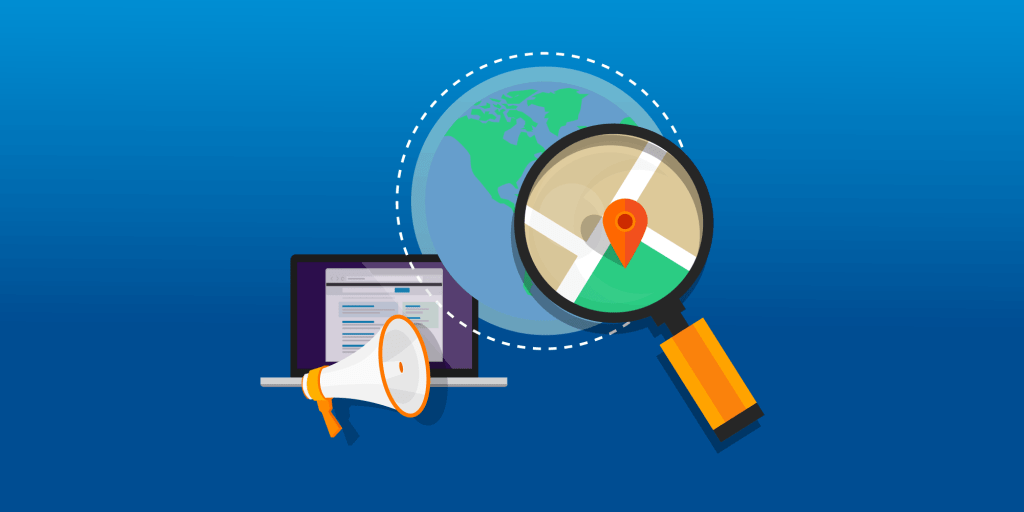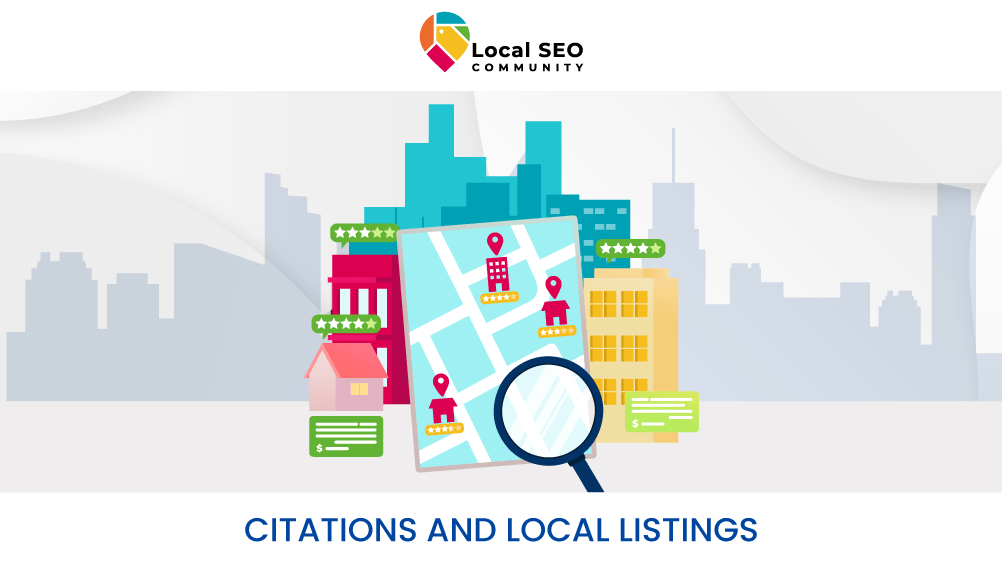Mastering Citations and Local Listings for Local SEO Success
Citations are online references to a business’s name, address, and phone number (NAP). These citations can appear on a variety of platforms, including websites, directories, apps, and social media networks. The primary function of citations is to help search engines verify the legitimacy, location, and existence of a business. Accurate and consistent citations are essential because they help search engines, like Google and Bing, to trust the information they find about your business, which can significantly enhance your visibility in local search results.
Different types of local citations
Citations can be categorized into two main types: structured and unstructured.
Structured Citations
Structured citations are found in online directories and business listings where the format of the information is standardized. These platforms typically have specific fields for a business’s name, address, and phone number (NAP), along with other details like website URL, hours of operation, and categories of services offered.
For example, when you create a business listing on directories like Yelp, Google My Business, YellowPages, or Bing Places, you fill out a form that asks for your business name, address, phone number, and other relevant information. The format and layout of these fields are consistent across all listings on these platforms, making it easy for search engines to extract and verify the data.
Structured citations are crucial for local SEO because they provide clear, reliable information to search engines. The standardized format helps ensure that the business details are easy to find, interpret, and trust. These citations also often include additional features like customer reviews, photos, and business descriptions, which can further enhance your local search presence.
Unstructured Citations
Unstructured citations, on the other hand, can be found in a variety of online content where your business is mentioned, but not in a standardized format. These citations can appear in blog posts, news articles, social media posts, and other web pages that mention your business’s NAP information informally.
For example, a local news website might write an article about your business and include your name, address, and phone number within the content. Similarly, a blogger might review your services and mention your contact details. These citations are not as systematically organized as structured citations and might not always include the full NAP information.
Despite their less formal structure, unstructured citations still contribute to your local SEO by signaling to search engines that your business is being talked about and referenced across the web. They help establish your business’s online presence and can boost your credibility and visibility. Search engines recognize these mentions and use them as part of the broader evaluation of your business’s relevance and authority in your local area.

How Can Local Citations Help with SEO?
Local citations play a crucial role in enhancing a business’s SEO, especially for local search results. One of the primary benefits of local citations is the improvement of local search rankings. Search engines use the presence and consistency of citations as a key factor in their local search algorithms. When a business has numerous high-quality citations from reputable sources, it signals to search engines that the business is credible and relevant, which can lead to higher rankings in local search results.
Additionally, citations enhance a business’s online visibility. Being listed in various online locations increases the chances of potential customers discovering your business. Even if your website doesn’t rank at the top of search results, a well-placed citation on a popular directory can still attract significant traffic to your website and physical location.
Citations also build trust and credibility. Consistent and accurate citations across multiple platforms help establish a reliable online presence. When potential customers see your business information consistently displayed on reputable sites, they are more likely to view your business as legitimate and trustworthy. This can significantly influence their decision to engage with your business.
Furthermore, accurate citations can drive more traffic and leads. Many customers use directories and review sites to find local businesses. If your business is listed correctly on these platforms, it can lead to increased traffic to your website and physical location, resulting in more leads and sales. Local citations also provide valuable backlinks to your website, which can enhance your site’s authority and improve its overall search engine ranking.
How to Build and Manage Local Citations
Building and managing local citations effectively requires a strategic approach. Start by identifying key citation sources relevant to your industry. This includes general business directories like Google My Business and Yelp, industry-specific directories, and local business directories. Research your competitors to see where they are listed and use those directories as a starting point for your citations.
Ensure NAP Consistency
Ensuring NAP consistency is critical. Your business name, address, and phone number should be consistent across all citations. Inconsistent NAP information can confuse search engines and customers, negatively impacting your local SEO. Regularly audit your citations to maintain consistency and accuracy.
Use Citation Tools
Using citation tools can streamline the process. Tools like Whitespark or Moz Local help you find and manage local citations efficiently. These tools can help you discover new citation opportunities, track your existing citations, and ensure they are accurate and up-to-date. They also provide insights into your competitors’ citations, allowing you to identify additional citation sources to improve your local SEO.
Monitor and Update Regularly
Monitoring and updating your citations regularly is essential. Regularly check your citations to ensure they remain accurate. Update any changes to your business information promptly to maintain consistency. Regular monitoring helps you identify and correct inaccuracies quickly, ensuring your citations always reflect the most current information about your business.
Submit to High-Quality Directories
Submitting to high-quality directories is another crucial step. Focus on submitting your business information to high-quality, authoritative directories. These directories provide valuable backlinks and can improve your local search rankings. High-quality directories are more likely to be trusted by search engines and potential customers, making them an essential part of your citation strategy.

Popular Local Citation Sites
Several popular citation sites can significantly impact your local SEO. Google My Business is the most critical citation for local SEO. Ensure your listing is complete, accurate, and optimized with up-to-date business information, high-quality images, and regular posts. Google My Business allows you to engage with customers through reviews and Q&A, enhancing your online presence.
Yelp is another widely used review platform that can drive traffic and improve local visibility. Encourage satisfied customers to leave positive reviews and respond to reviews promptly to maintain a good reputation on Yelp. This engagement can influence potential customers and improve your local search rankings.
Facebook is a significant social media platform where businesses can create a local page and reach a broad audience. Use Facebook to share updates, engage with customers, and promote events. A well-maintained Facebook page can serve as an additional citation and enhance your online presence.
Bing Places is similar to Google My Business and is essential for appearing in Bing’s local search results. Ensure your listing is accurate and complete to capture the audience using Bing for local searches. Bing Places also offers tools to manage multiple locations, making it easier for businesses with multiple branches.
YellowPages is a long-standing directory that still holds value for local businesses. Ensure your listing is up-to-date and includes relevant information to attract potential customers. YellowPages can provide valuable backlinks and improve your local search visibility.
Foursquare is useful for businesses in the hospitality and entertainment sectors. Encourage check-ins and reviews to boost your visibility on Foursquare. This platform can help you reach a younger, tech-savvy audience looking for local experiences.
Apple Maps is important for businesses as many users rely on Apple devices for navigation. Ensure your business information is accurate on Apple Maps to capture customers using iPhones and other Apple devices. Apple Maps is particularly important for businesses that rely on foot traffic.
Better Business Bureau (BBB) provides credibility and trustworthiness for your business. A BBB listing with positive reviews can enhance your reputation and attract customers who value trust and reliability. The BBB accreditation can also improve your local search rankings.
If you are unsure where to start, use a local citation finder. Tools like Whitespark or Moz can help you discover citation opportunities and manage your existing citations effectively. These tools provide comprehensive reports on your current citations, highlight inconsistencies, and suggest new citation sources to improve your local SEO.
Avoiding Common Mistakes with Citations
Avoiding common mistakes with citations is essential for maintaining a strong online presence.
Inconsistent NAP Information
One common mistake is inconsistent NAP information. Ensure your business name, address, and phone number are consistent across all citations. Inconsistencies can confuse search engines and customers, leading to lower search rankings and potential loss of business. Regularly audit your citations to maintain consistency and accuracy.
Duplicate Listings
Duplicate listings can confuse search engines and customers, diluting your online presence and potentially leading to penalties from search engines. Use citation management tools to identify and merge duplicate listings.
Ignoring Niche Directories
Don’t overlook industry-specific directories that can provide valuable citations and targeted traffic. Niche directories are often highly trusted by search engines and can significantly boost your local SEO. Research directories specific to your industry and ensure your business is listed on them.
Neglecting Reviews
Encourage customers to leave reviews on citation sites, as reviews can enhance the credibility and attractiveness of your listings. Respond to reviews promptly and professionally, addressing any negative feedback constructively. Positive reviews can improve your local search rankings and attract more customers.
Not Monitoring Citations
Not monitoring citations regularly is a mistake that can lead to outdated or inaccurate information. Regularly monitor and update your citations to ensure they remain accurate and relevant. Set up alerts for changes to your business information and promptly correct any inaccuracies. Regular monitoring helps maintain a strong online presence and ensures your citations always reflect the most current information about your business.

Additional Important Topics
Leveraging social media for citations is an effective strategy. Utilize social media platforms to create consistent citations and engage with local customers. Social media profiles serve as additional citations and help improve your local search visibility. Regularly update your social media profiles with accurate business information and engage with your audience through posts, comments, and messages.
Understanding citation value is crucial. Not all citations are created equal. Focus on high-quality citations from authoritative and relevant sites. High-quality citations are more likely to be trusted by search engines and can significantly improve your local search rankings. Use citation management tools to identify and prioritize high-value citation sources.
Using structured data (schema markup) on your website can also enhance your local SEO. Structured data helps search engines understand your business information better and enhances the visibility of your business information in search results. Use tools like Google’s Structured Data Markup Helper to add structured data to your website.
By understanding and effectively managing local citations, businesses can significantly improve their local search rankings, increase online visibility, and attract more customers. Regular monitoring and strategic use of citation tools can streamline the process and ensure the best results for local SEO efforts. Properly managed citations build trust with both search engines and customers, leading to a stronger online presence and increased business opportunities.



